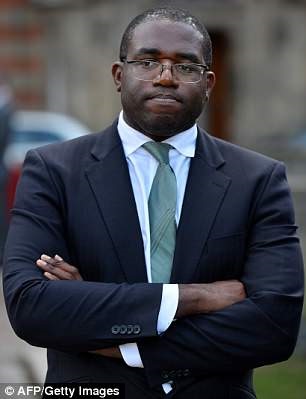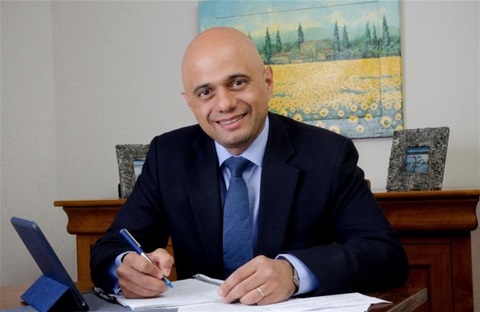Illegal drugs
‘Last year the coffee market grew by 7.3 per cent, making it worth £9.3bn.’
''Buying drugs is like ordering a Deliveroo'' - "London's murder surge is being fuelled by 'prolific £11bn cocaine market',
says Tottenham MP David Lammy."
£11 Billion for just the cocaine market!
There are 3 Reasons why it would be better to De-Criminalise / Legalise / Licence The drug markets.
3. The government looks [Lammy] like it has lost the war in addition to having lost that war. It could be within the market model to stop vilifying wider society in real terms. Bite the bit and [as long as the British government does not talk its way out of the potential tax revenues] allow legitimate business to bring high and safe standards to 'The People' currently living in the black market shadows of deliverpoo dot com. [Much like the guards of Colditz Castle who banned alcohol that only led 'plucky' to make jam gin to make ‘jam happy.’] In the U.S the prohibition ‘era!’ led to moonshine blindness until re-licenced manufacturing regulation brought that to an End.
2. Creating a Criminal class structure that takes up police resources, Costs a fortune and perpetuates a criminal inducing job opportunity fed by a further excluded cultural under class gravitating towards their concept of glamour and rejecting society back.
1. Victimizing a whole market sector [ranging and matching the alcohol market diversity] and exposing these people to Unnecessary Additional Health Danger.
A progressive pro-active change is necessary to alter the criminal control.
Legalise & Licence supply for the drugs 'Market' dominant uncontrollable demand superiority
And thereby ruduce risk, violent criminals and create tax revenue, instead of huge costs while loosing the war totally.
[The only time the coast guard catch channel coastal people smugglers is when the smuggler has to dial 999.]
[All drugs captures do not reduce any supply chain or effect retail price.]
About politician's in the 2019 admitting to taking illegal drugs / class A or B
Is It not the truth that the above is proof that the law is in denial and that the argument is being made by dinosaurs looking at modern life and health dangers from a rigidly cerebrally constipated paternal viewpoint. !?
"Everyone" uses a Class B drug. I know many people in these modern post novelty illegal naughty evolved days who at the end of a hard days work choose something else rather than a glass of wine or two beers, as their relaxer of choice.
When it comes to the reason for illegality being, keeping the public or the youth safe - I say why were cigarettes never made illegal? Why, when drink causes so much violence, crime and fills hospitals with both acute and chronic health problems with reduced life expectancy did Britain not make alcohol illegal? Why did America repeal the alcohol prohibition law?
https://www.thesun.co.uk/news/9253957/sajid-javid-drug-users-blast-michael-gove/
Impenetrable inflexible old fashioned thinking. [My comment bracketed]
Ignore our London-centric political classes – cannabis legalisation is still a terrible idea
The Westminster bubble promotes drug liberalisation with little thought for those most affected by it
London’s dinner parties have rarely been as united as they are around the cause of cannabis legalisation today.
The Adam Smith Institute, a free-market think tank based in Westminster, recently launched a pro-legalisation paper, alongside a gushing week-long campaign by the Evening Standard. Last month saw the creation of the Conservative Drug Policy Reform Group, also seeking to free the weed.
Most recently, MPs David Lammy and Norman Lamb voiced their support for the loosening of drug restrictions in a BBC documentary aired last night, where they also predicted that cannabis will be legalised in Britain within five years.
But these positive noises are mostly confined to London dinner parties. Leaving the bubble reveals a very different picture. Sometimes our capital seems almost blind to wider public opinion: "63 per cent of Londoners support legalisation" trumpeted the Evening Standard’s headline, but what of the 41 per cent who agreed in the North East, or just 36 per cent of respondents in Yorkshire and Humberside?
[What was the percentage% of public opinion that agreed with the legal introduction of the seat belt? What about the fear and anger at the abolishment of street gas lighting or the banning of coal fires in cities? Forced inoculations - Since when does public opinion count against deadly danger? Such as laws that cause harm.]
And it’s more than mere geography. Westminster think tanks, the media and ruling class may all be falling into line, but our work at the Centre for Social Justice finds staunch resistance among those on the margins of society.
There is little support for legalisation among our mental health services. For those working on the front line with people suffering from ailments like psychosis and schizophrenia, with ever mounting evidence about the role cannabis plays, many are fearful about the consequences of legalisation.
[From their position They would say the same against the legalisation of the ills of moonshine alcohol, or ‘alcohol’ if it were illegal.]
Youth charities and job centres trying to help young people gain qualifications and the unemployed into work also know how hard it is with cannabis in the equation.
The drug treatment sector has lost 30 residential rehabilitation centres in the last five years alone. Broadreach in Plymouth closed through lack of funding just a week ago. About seven in ten local authorities are promising further cuts next year, even though treatment budgets have already cut by more than half in some areas. For those who need to enter into recovery in the UK, access to help is far from guaranteed.
While wealthy Londoners seek to expand their ever-growing liberties, it is more likely to be the single parent on the housing estate who will have to raise her three children in the fug of a neighbour’s habit, than those pushing for change.
[I have many neighbours around me and I have never encountered their fug as I am separated by walls as they are from my fug. – Single mothers are a problem of neglect, poor education and inaction, as is banning or ignoring problems rather than dealing with them – a desire to live life without drugs is a social philosophical issue neglected and the ‘freedom’ to indulge in ‘recreational’ drugs is an infringement of neglectful biased discriminatory government.]
And, beyond habit and occasional use, addiction will become a bigger issue. The World Health Organisation estimates that one in ten users goes on to develop a serious problem and legalisation would see a big rise in users.
[By this logic making alcohol illegal would reduce health related illnessess caused by the over use of alcohol.]
Estimates vary but the CSJ commissioned a national poll from YouGov last year which found that of the 73 per cent of UK adults that had never tried cannabis, we should expect about one in ten to give it a go if legalised. Among 18-24 year olds, that figure rose to one in four.
[Cigarettes are still legal – Children will be children – Better to say “Don’t!” or this “Be Warned, this stuff carries risks.” or push cigarettes onto the black market, into the hands of illicit manufacturers, drug dealers, police time & cost, tax payers money, court time and cost, prison space, cost & damage and hospital resources?]
Direct testimony like this is not a guarantee but the prospect of hundreds of thousands of addictions, at a time when the treatment sector is in collapse, should give us rather greater pause for thought than it seems to.
[Life, Addictions Balance – Buddha]
Similarly we are often told that if we could just legalise cannabis we could expect crime to tumble. The CSJ has made no such assumptions about how criminal organisations would react to legalisation but has instead sought to ask them about their operations. Over 8 hours of interviews and over the course of two days with former drug dealers, the CSJ heard compelling evidence that they would sell whatever product made them money. That could be cannabis at a reduced price or it could be other drugs.
“I would just sell crack and heroin instead,” said one interviewee. “Exactly,” confirmed his colleague. So perhaps not the crime free Nirvana many are hoping for.
[The / a Criminal attitude is the prevailing problem. Make anything illegal to a large market and you create opportunity – Conversely make no commodity illegal and there will be no product criminal opportunity.]
This is doubly concerning in light of the overwhelming evidence that the drugs trade is indeed becoming increasingly complex and unpredictable. The use of Ketamine has more than doubled in the last recorded year. Benzodiazepines use amongst young people is soaring, while cocaine and MDMA use has also spiked in recent years.
[Criminals did not invent desire.]
Over the last 7 years there has been a 35 per cent increase in Class A drug use amongst 16-24 year-olds. The drugs market does not rest and fall on the legal status of one drug, even something as widely used as cannabis. To suggest that wider social harms will simply fall away with its legalisation is to misunderstand the illicit drugs trade and the motivations of those involved.
[Oh Contraire my impenetrable prohibition advocate, you misunderstand the illicit effects that you promote and protect.]
On quality, it is accepted that some people would benefit from increased access to regulated, lower potency cannabis, but this will also drive higher quantity use and progression. There is considerable evidence that frequent use drives tolerance. What's more, the likely presence of home growing, permitted in most post-legalisation jurisdictions, substantially undermines any real prospect of effective quality control.
[Total nonsense – homebrew is usually of an inferior quality and a minor trend compared to regulated and renowned products available at all good outlets including Fortnum & Mason.]
Illegal markets will continue even if reduced in size and overseas websites that deliver to the UK already offer the sale of cannabis seeds with a crop of very high potency cannabis. To make it worse, the job of police to tell the difference between legal and illegal would become all but impossible. This is all before we’ve even given Big Tobacco and Big Pharma the permission to do their worst – hardly two industries with unblemished records on marketing and regulation.
[You have failed to reduce ‘the size’ and availability is easier and cheaper than ever. Quality will become the preference given the controlled availability. The police need not be involved in a legal licensed [alcohol] trade.]
Even arguments on revenue generation are wafer thin. True, the government raised just under £12 bn in alcohol duties last year, the societal cost of alcohol misuse in the UK has been estimated at £21 bn a year. Elsewhere, the system does little to ensure that industry harms are offset by contributions to treatment and recovery. The Gross Gambling Yield of 2018 exceeded £14 bn and the total contribution to GambleAware in the same period still fell well short of its paltry £10 million target. Arguments that revenue generated through taxation of a product will offset the societal harm should be seen in this context.
[I doubt your billions - Your own argument cornered you there – offsets – and social harm will go the way of moonshine to smirnoff]
Last month, the beauty parade of potential Conservative leaders was interrupted by revelations that almost all had taken drugs of some sort, including cannabis. The contenders made these admissions with little concern that they would impact the race, and without fear of legal ramifications. Far from a "war on drugs", what we have is already a practical free-for-all. But even in that context long term trends are moving away from cannabis use.
[You are in denial of the norms of society and therefore at odds with modern life at great cost and unnecessary damage – Moving away? On to what Ketamin, Veganism, video games fuelled by veneo?]
Rather than reversing that trend and igniting all the potential problems that will accompany it, we need to maintain the disincentives that are already working, and offer more constructive treatment and sentencing for those caught in possession. Most importantly, everyone – from the Prime Minister downwards – should be clearer about the dangers of drug abuse.
[I see a man in a black wool tunic with a very white neck collar, looking serious, stern and Contrite.]



